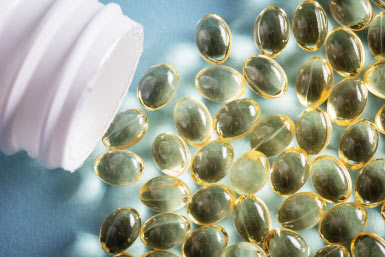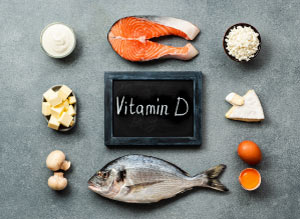Sunshine Vitamin or simply, vitamin D can do magic against COVID-19 or any other virus-related diseases. You need to know that it cannot cure COVID-19 virus but it is necessary for our immune system to function against COVID-19.
Boost your immune system to defend lots of viruses including COVID-19.
But How?
You need to know little more for fully understand. It is written based on many published medical journals and written in a simple way so everybody can understand.
What happens when vitamin D is low?
The low level of vitamin D in the human body is common. It is observed that vitamin D deficient people are found mostly where sunshine exposure is minimum.
The population from Canada and Northern USA are found more vitamin D deficient. Also, people with color are generally found with insufficient vitamin D. That is why decades ago, rickets (a bone disease) patients are found more in Asian countries. But it is rising in European and American countries as well.
For that reason, many countries are now recommending food fortification with vitamin D. That is why we can see in supermarkets that many food brands are already introduced fortified milk and yogurt.
From many studies around the world, vitamin D deficiency is linked to various diseases. It is linked from various cancers to bone health, obesity to infection and immune disorder.
Vitamin D deficiency could lead to
• Weak and Fragile Bones
• Bones Fracture easily
• Bowed Legs
• Bending of Spine
• Dental problems
• Inflammation
• Auto-immune conditions
• Frequent Infection
• Cardiovascular problems
• Cancer
• Diabetes type 2
• Bone loss
• Neurological problems
Some of these diseases cause long time sufferings and even death. We will talk more about this in the following sections.
Who are at higher risk for a vitamin D deficiency?
- The obese
- diabetic patients
- Asthma patients
- People with weak bone
- People with weak respiratory system
- Senior adults
- People with any type of inflammation
- breastfeeding moms
- people with long term illness
Why Vitamin D is so important?
It is vital for our health because it is not produced by our body. And, it is not easily found in nature. It is abundant but cannot get easily!
The benefits of vitamin D:
• 20x increase absorption of calcium
• Increase absorption of iron, magnesium, zinc and phosphate
• Controls immunity to viruses
• Can turn off asthma symptoms
• Strong bones
• Prevents deformation of bones
• Prevents chronic muscle/skeletal pain
Now, lets check how do we know our vitamin level is low in the following section.
What are the symptoms of low vitamin D?
There are 7 common signs that tells about your low vitamin D level.
Vitamin D is a big deal if your levels are low chronically. It can lead to suffering early disease and early death and so we want to avoid those things all we can. Now if you already know about
vitamin D and you are taking a good supplement, you have tooken good steps for your health. But, I can bet you have friends and neighbors who do not know much. Please share articles and talk about it with them in any medium. Share this page link on your social media or email it to them. Show them you care about their health.
Now, let’s talk about seven signs that your vitamin D might be low and we may even talk about what you can do to fix it at the end.
- Bone aches:
For an adult, the number one sign that your vitamin D might be low is bone aches.
If your bones ache, not your joints, but your actual bones themselves is a sign of low vitamin D in your body. That’s a condition called osteomalacia, which means painful bones. When your vitamin D level is below 20 or 25 nmol/L you can have osteomalacia or painful bones.
Try to press your shin-bone or press little on the middle of your chest with your thumb, if you feel ache then it is a big indication that you should take consultation with your doctor regarding vitamin D deficiency.
It indicates that they’re not being able to keep their bone density up where it needs to be; this is your bones yelling at you “Hey, buddy take some vitamin D or, get out in the Sun.”
So, osteomalacia is a big deal if you don’t have enough vitamin D.
You can actually lead to osteopenia and ultimately Osteoporosis which are brittle bones. You may heard about some older folks have fallen on the carpet and break the wrist. This happens because of brittle bones.
If one mid-age adult was leaning over to get something to pick it up off the floor and just fall off the couch and broke wrist, then it is not normal. If she went to an orthopaedic doctor then it is alright, but normally, Orthopaedic surgeons does not check any blood work.
When she was checked their vitamin D Level, it found vitamin D level 8 or 12, and it should be over 40.
So, when you fall down on the carpet you shouldn’t break any bones; if you do, then you’ve been vitamin D deficient for a long long time. So achy bones… that’s sign number one.
- Chronic fatigue:
We know, a thousand different possible conditions can show this sign. But if you go to see your doctor for chronic fatigue, one of the very first things she should check is a vitamin D.
Less than 25 level of D vitamin indicates a low. If you have no other previous major illness or underlying condition then it’s an easy catch and there exist an easy
fix if your doctor checks the right lab work. So chronic fatigue can be from low vitamin D.
- Frequent viral infections:
You have repetitive flu/cold infections way more often than your friends do, that could be a sign of low vitamin D. Because good level of vitamin D protect you from infection.
- Depressed mood:
I don’t mean clinical depression, I’m talking about just depress, kind of very low mood, then trust me that can be from low vitamin D. More and more research is coming out to show that vitamin D is very un-inflammatory both for your brain and for other body tissues. So, one of the things that you could have is a depressed mood if your vitamin D level is very low. Consult to your doctor and get a blood test and within that lab work vitamin D level should be more than 25. If it’s low it needs to be fixed.
- Slow wound healing:
If someone get a cut or an abrasion and it seems like it just takes forever to heal or if it seems like he heal far slower than his friends and family, then he may have low vitamin D.
Vitamin D is in charge of hundreds of biochemical reactions in your skin and other parts of your body and your skin just doesn’t heal as effectively as it should be because your vitamin D is low. So that’s another red flag that you may have low vitamin D.
Since other medical issues can show this symptom, so please seek medical consultation. If there is no previous or underlying medical issue then a person should get a lab work to check vitamin D level.
- Muscle aches:
It similar to number one symptom but vital sign as well.
If you walked 20 thousand steps yesterday and that’s the first time you’ve done that in years, it makes sense that your muscles would ache.
But if your muscles ache all the time and there’s no real reason for it, you may have low vitamin D.
Obviously there are other things that could be, so go see your Doc. and get a full lab panel and a full exam. You may have low vitamin D.
Simply takin Vitamin D3 every day could fix your achy bones and your achy muscles.
- Poor Sleep:
Are you a lazy person? Then this is not for you.
If you are not a lazy person but you feel tiredness and feeling sleepy all through the day, then please go and check your vitamin D level. There is a high chance that you have less than 25 level of vitamin D.
- 75% world population are vitamin D deficient: (source)
I added this here for more awareness about the fact.
As I already mentioned, if you live in the US and Canada, if you live in the UK or Ireland, if you live anywhere up in the higher latitudes, you don’t get enough sun to make vitamin D.
So, what are the solution for you, if your vitamin D is not sufficient.
What should I do if my vitamin D level is low?
Get more sun.
90% of vitamin D can be absorbed by just sun exposure. It is said that morning and evening sun exposure is more effective.
If you can’t do that then get more vitamin D diet or a good Ketogenic diet.
Take some examples, if you’re eating grass-fed butter, that has vitamin D.
If you’re eating the egg yolks from chickens who were able to run around in the yard and eat bugs and worms, those egg yolks have vitamin D3. You got the point, right?
We just suggest you to get your vitamin D from the Sun and from your diet.

Vitamin D3 Supplements with fish oil 
Sources of Vitamin D
But if you just have to have a supplement then make sure you’re taking a good vitamin D3 supplement, not D2!
Keep in mind that all vitamin D fortified food brands normally mention vitamin D or D2. It will not work the way Vitamin D deficient people needed.
Also, a lot of people think dairy is a good way to get vitamin D. It’s a terrible way to get vitamin D. It’s been fortified with vitamin D2 as well, which is again not as well absorbed.
So if you can’t get it from the Sun and you can’t get it from your diet then take a supplement.
If you do take a supplement make sure it’s vitamin D3, make sure it’s in a in an oil-filled gel cap, and make sure that the oil they use is not soybean or canola oil. You can get one off Amazon.
We are not advertising to buy you one but we can recommend some good product that easily available on Amazon.
Again, we prefer the Sun and good diet as a source of vitamin D.
How to increase absorption of vitamin D
A good lifestyle and a healthy diet can help you to have a good gut. Simply keep in mind following things that help to absorb vitamin D.
• Get outside and get more sun
• Take more vitamin D with food
• Take zinc
• Take vitamin A
• Take magnesium
• Avoid low-fat diets or low-cholesterol diets
• Lower your stress
• Take probiotics
• Take bile salts who have gallbladder problems/no gallbladder
• Regular exercise
• Take boron
• Take vitamin K2
• Get plenty of omega-3 fatty acids
Many of these can be found as supplements on Amazon or stores, but our advice remains to get a good consultation time with your doctor before taking them.
Our pick from Amazon:
The link between low vitamin-D and Covid-19
It has been already published by different studies, people with color have less vitamin D level. For this reason, it is said that in the UK and USA, many people with color affected by COVID-19 and died.
It has also backed by a new study in Spain published 27th October 2020. in Spain, more than 80% of hospitalised covid-19 patients had vitamin D deficiency.
COVID-19 directly attack our respiratory system and it blocks 90% of our interferon. Interferons are a family of cytokines with antiviral properties. It helps us to fight against many viruses.
Vitamin D enhances responses to interferon-β in MS. So, vitamin D could lower the risk of respiratory infections by helping cytokines.
There is a major study published on BMJ related to respiratory infection and vitamin D. This was a meta-analysis on the role of vitamin D to prevent acute respiratory tract infections.
The study concludes 2 vital things:
- “Vitamin D supplementation was safe and it protected against acute respiratory tract infection overall. “
2. “Patients who were very vitamin D deficient and those not receiving bolus doses experienced the most benefit.” FIY, bolus doses means a one-time high dose.
Ads by Amazon
Takes of this article
Simply to say, take care of your health. If your vitamin D level is insufficient or you are D vitamin deficient then take more vitamin D.
This article has written in a simple way for everyday people. It is intended to make you aware of the vitamin D pendamic. It is not intended to sell vitamin supplements through ads but those can help us to write this type of articles for everybody.
Sources:
1. https://www.ncbi.nlm.nih.gov/pmc/articles/PMC3756814/
2. https://vitamindwiki.com/Acute+respiratory+distress..
3. https://www.bmj.com/content/368/bmj.m810/rapid-responses
4. https://www.bmj.com/content/356/bmj.i6583
5. https://www.ncbi.nlm.nih.gov/pmc/articles/PMC2759054/
6. https://www.forbes.com/sites/daviddisalvo…
7. https://www.theguardian.com/science…
8. https://www.covid19treatmentguidelines.nih.gov/immune-based….





